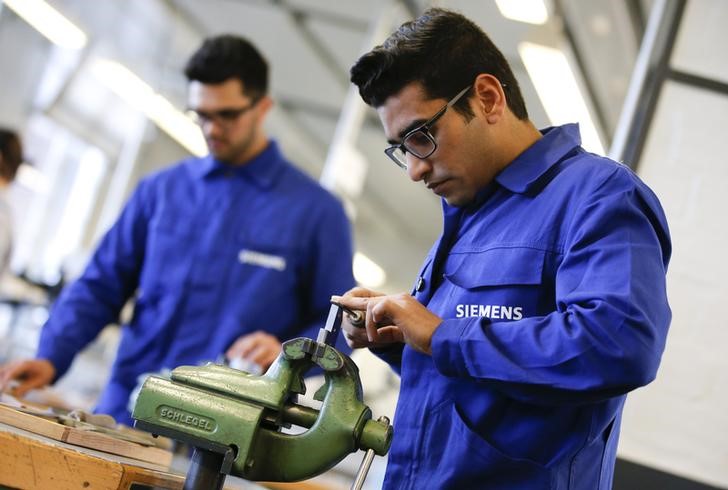(Bloomberg) -- The German economy saw a glimmer of hope at the end of the third quarter, with factory orders increasing for the first time in three months.
Demand rose 1.3% in September, far exceeding estimates of a 0.1% gain. The jump was driven by solid pickup in investment and consumer goods, with demand from outside the euro area providing a particular boost.
Yet orders were still down 5.4% from the previous year, suggesting momentum will continue to be weak. Germany probably went into a technical recession during the last quarter, and the labor market started to deteriorate.
The data follow a report showing euro-zone manufacturing near its weakest in seven years, with job losses accelerating and order books declining. Even as the global economy shows signs of putting the worst of its recent slowdown behind it, Germany has continued to struggle.
Policy makers at the European Central Bank have called on European governments to step in with fiscal support, arguing that monetary stimulus alone can’t deliver the necessary boost. A call for additional spending also featured in President Mario Draghi’s farewell speech last week, and his successor Christine Lagarde is likely to continue his efforts.
Yet governments have been reluctant, with German Chancellor Angela Merkel’s administration indicating that the situation has to deteriorate before significant aid will be unlocked. Finance Minister Olaf Scholz has said the economic situation doesn’t require a rushed fiscal response.
The government’s council of economic advisers is set to slash its growth forecasts for this year and next when it presents Merkel with its annual report later on Wednesday.
